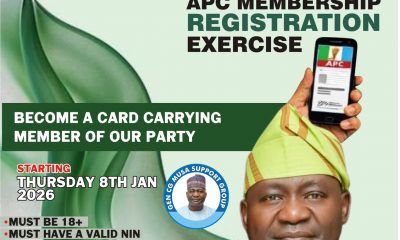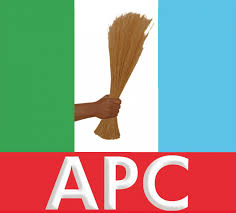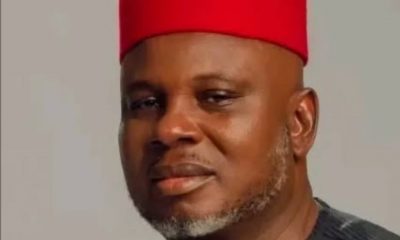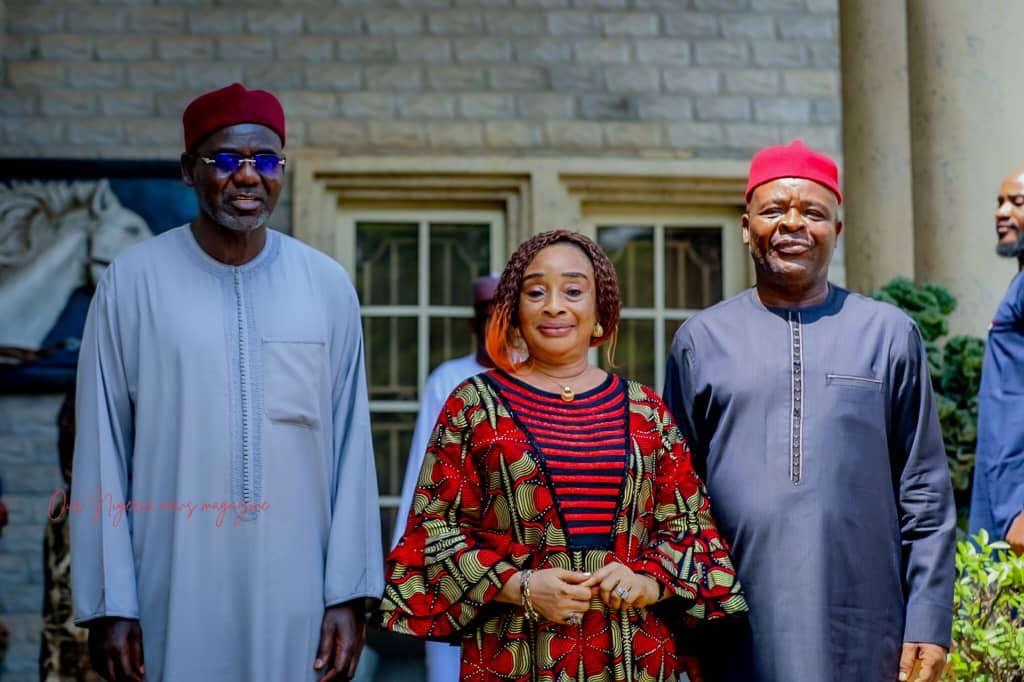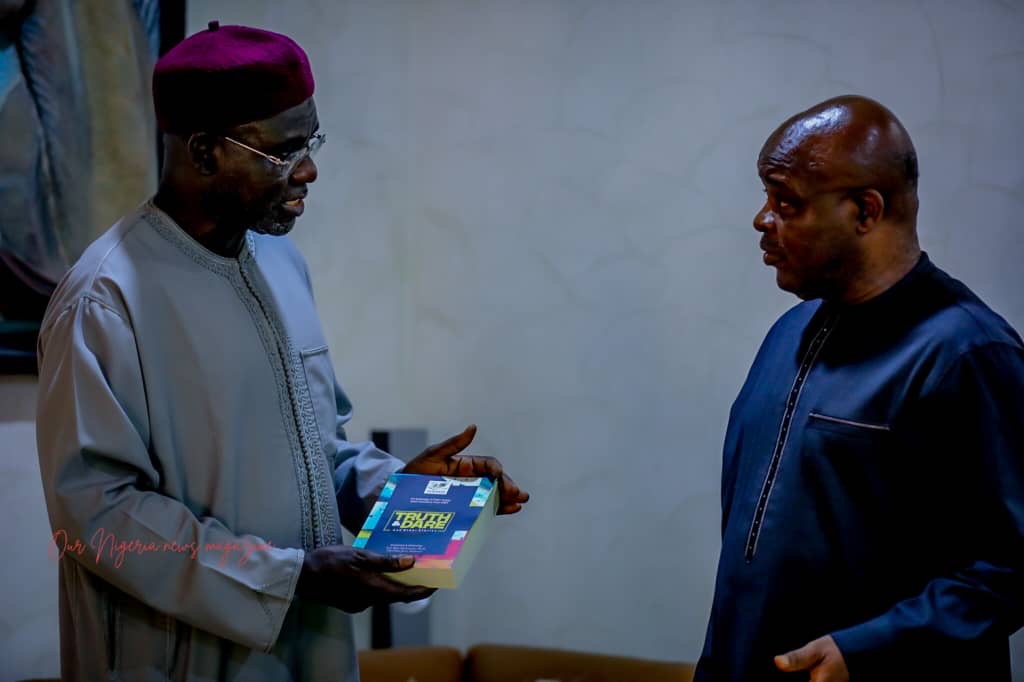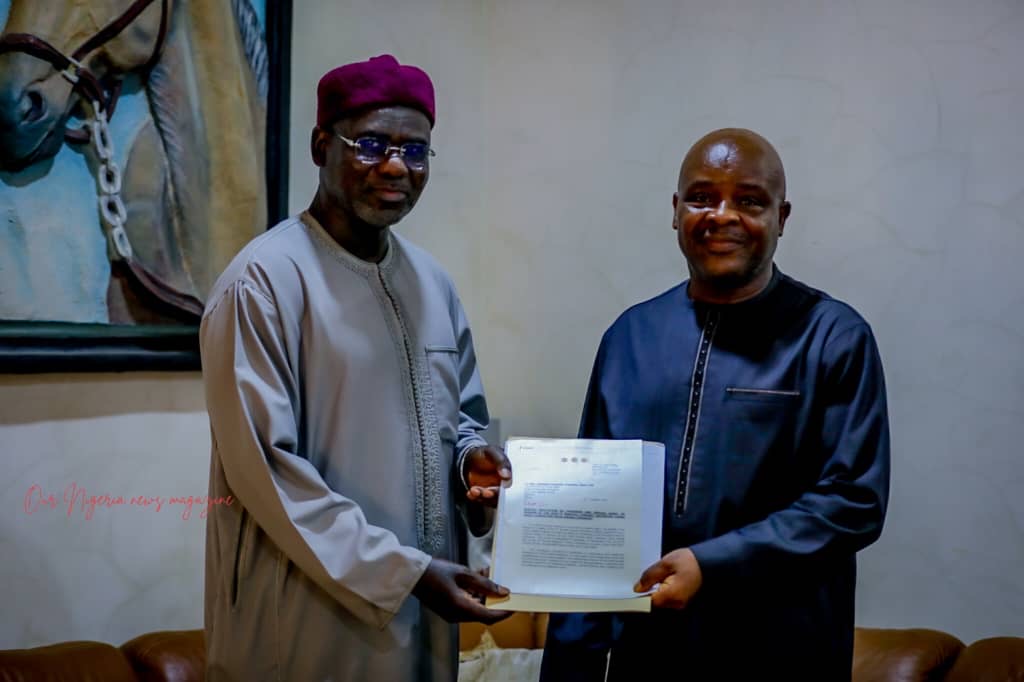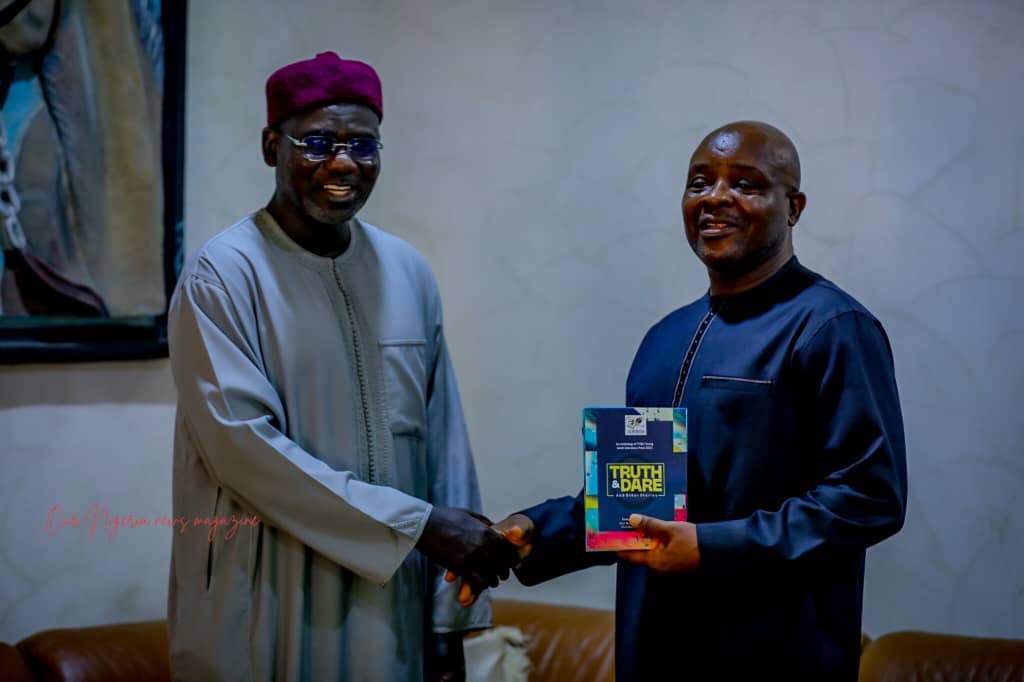news
Flashback: How Ikenga Ugochinyere almost fraudulently scuttled APC registration in 2013
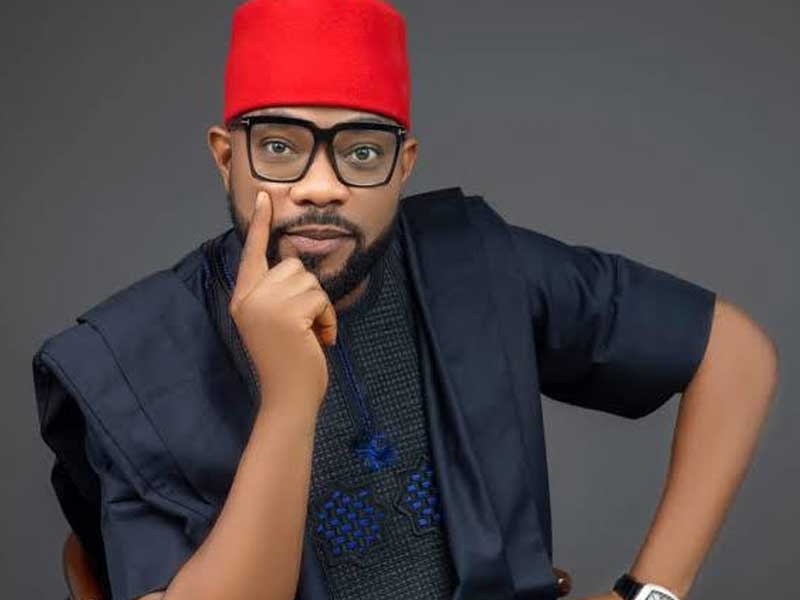
Flashback: How Ikenga Ugochinyere almost fraudulently scuttled APC registration in 2013
By Kumbi Aderibigbe
Sahara Weekly Reports That For many Nigerians watching the unfolding drama around the dissolution of the Special Investigative Committee set to probe the face-off between billionaire businessman, Alhaji Aliko Dangote and his refinery on one side, and the Nigerian National Petroleum Company Limited (NNPCL) and the Nigerian Midstream Downstream Petroleum Regulatory Authority (NMDPRA ) on the other, the involvement of House of Representatives members, Ikenga Ugochinyere, brings back distasteful memory of a time gone by.
Representative Ugochinyere is presently, Chairman of the House Committee on Midstream and Downstream. He was also the chairman of the Special Investigative Committee just disbanded by Hon. Tajudeen Abbas, Speaker of the House.
Set up by the House following recrimination and counter recrimination between Dangote and NNPCL and NMDPRA, the Committee was expected to impartially investigate the matter and make its findings known to the House for appropriate action.
At issue were Dangote’s allegations that the NNPCL and it’s partners, the International Oil Companies (IOCs)operating in Nigeria, were refusing to supply his refinery crude for refining, and that the NNPCL had opened a blending plant in Malta for crude refinement.
He also accused the NMDPRA of indiscriminately issuing import licences to marketers to import petroleum products into the country. Denying the allegation against it, the NMDPRA responded by accusing Dangote Refinery of producing diesel with sulphur content well above internationally specified standard.
These were the issues Ugochinyere and his colleagues in the Committee were expected to address but unfortunately, things took a different turn. Contrary to the expectations of the leadership of the House and millions of Nigerians who had become worried over the likely impact of the clash of key players in the Nigerian oil sector on supply of petroleum products in the country, Ugochinyere saw in the committee, a vehicle for promoting his narrow personal interest. He turned the committee into a one-man show, sidelining other members of the committee and writing press statements and addressing press conferences without their knowledge and involvement. The height of his perfidy was his unilaterally absolving Dangote Refinery of wrongdoing and calling for the sack of Mallam Mele Kyari, Group Chief Executive Officer of NNPCL, and Engr. Farouk Ahmed, Authority Chief Executive Officer of NMDPRA, even before the committee had commenced investigation into the matter.
The disbanding of the investigative committee by Speaker Abbas has assuaged the anger of Nigerians even though Ugochinyere’s conduct has left many nonplussed.
Those shocked or surprised by the lawmaker’s antics can be forgiven because they know very little about his antecedents. To keen watchers of the Nigerian political scene, his behaviour is consistent with his character.
Eleven years ago, not very many Nigerians knew him or had heard of him but he was suddenly catapulted to national prominence in 2013 when leading opposition political parties seeking an end to the Peoples Democratic Party’s (PDP) hegemony rallied to form a mega party.
They settled for the name, All Progressives Congress with the acronym, APC. As they crossed the t’s and dotted the i’s of the alliance before seeking formal registration with Nigeria’s electoral umpire, the Independent National Electoral Commission (INEC), a group with the same acronym (APC) but with the name, All Peoples Congress, immediately submitted a request for registration as a political party. The move by this group pitted them against the larger body of opposition political parties who claimed to have first come up with the APC acronym. They would also later apply to INEC for registration as a political party.
As the disagreement between the two groups raged, INEC after due consideration of the evidence before it, registered the All Progressives Congress as a party while declining to do the same for the All Peoples Congress. In denying the latter registration, INEC said it breached Section 222 (a) of the 1999 Nigerian Constitution as amended.
INEC’s Director, of Public Affairs, Emmanuel Umenger explained that the commission had conveyed it’s decision to the group:
“The Commission has written to this political association and had stated in very clear terms that they are in breach of section 222 (a) of the constitution with the additional explanations stated in the letter.
The Commission also observed that the submission made on form PA 1 does not contain the addresses of the national officers of the political association as stipulated and it means this association has the responsibility to prove, because these are the things the commission has observed and the law says if you do not meet any of these requirements you will not be registered as a political party.
“The commission has gone ahead to explain in its letter I have on my table. The letter we have sent today was duly signed by the Secretary to the Commission, Abdulahi Kaugama and it is self explanatory, the letter is dated 21, 2013 which was signed and collected by one Michael Ogani of APC”, Umenger said at the time.
The letter as later made avaliable to the public and signed by the INEC’s Secretary, Alhaji Abdulahi Kaugama reads in part:
“Your application for registration as a political party dated 28th February, 2013 refers. The Commission has observed that your association is in breach of Section 222 (a) of the Constitution of the Federal republic of Nigeria, 1999 (as amended) which stipulates as follows: “No association by whatever name called shall function as a political party unless; the names and addresses of its national officers are registered with the Independent National Electoral Commission;.
A close observation of your submitted form PA 1 established that it does not contain the addresses of your national officers as stipulated in the provisions above. Consequently, the commission shall not register the proposed African Peoples Congress (APC) as a political party.”
The party accused INEC of conspiring with the registered APC to deny it acceptance but the electoral body insisted it acted within the purview of the law. It would emerge later that Ugochinyere was one of the key figures floating the All Peoples Congress as a means of preventing the All Progressives Congress’ emergence as a political party at a time Nigerians were seeking a genuine alternative to the then ruling Peoples Democratic Party (PDP) to which he belonged.
A young lawyer, Mr. Chinedu Samuel Nwokorie, a 2011 graduate of the Nigerian Law School in Bwari, Abuja, blew the lid off Ugochinyere’s caper with his revelation in a newspaper interview that he was hired by Ugochinyere to scuttle the registration bid of the now ruling APC. Nwokorie told Nigerians in that interview:
“Ugochinyere Ikenga approached me sometime in February 2013 to put in an application for the registration of a political party by name African Peoples Congress,” Nwokorie said, expressing regrets and denying that he was a politician of any sort.
“He paid me an initial sum of N30,000 and later added another N50,000 and a Samsung Galaxy phone after I had filed the papers, with a promise that he was going to settle me after the party must have been registered.
“I filed the application in the honest belief that it was just another political party because even the application I entered at INEC only bears the name African Peoples Congress. The acronym APC was not included in the application.
“So there was no way I could have visualize, whether or not there was an ulterior motive in the registration of that political party. I was, however, surprised to see my name all over the newspapers, including the sample of the application letter I wrote to INEC.
“I wish to let Nigerians know that I am not a politician in anyway whatsoever. I regret the issues at hand and the dimension the entire thing is taking.”
The young lawyer who studied law in Cameroun before going to law school in Abuja added that each time he developed cold feet on the issue, Ugochinyere was always on hand to egg him on. He said:
“He keeps telling me not to worry, that I should be a man and that he would handle the matter. He also said that the real owners of the party would soon be revealed to Nigerians.
“Once again, I want to tell Nigerians that I just took a brief as a young lawyer and it ended there. I don’t know the sponsors of the party. The only person I know is Ugochinyere Ikenga, who gave me the brief.
“I got to know Ikenga through a friend. I thought it wise to come out and tell Nigerians the entire story because I keep receiving calls all-day through. My major concern now is my letter head, which is in the custody of INEC.
From the evidence above, it is clear that Ugochinyere has a history of involvement in dubious enterprises and of manipulating people to achieve his aim. After collecting what must be a handsome pay cheque from his sponsors to scuttle the APC’S registration plan, he shamelessly and unconscionably recruited a young and aspiring lawyer and paid him peanuts to put his fledgling career on the line.
For those in doubt of Ugochinyere’s status as a hatchet and gun for hire, a March 16, 2013 report in Premium Times, a leading online news platform in Nigeria, lends credence to his ability to take on hatchet jobs. The report titled, “PDP disowns hatchet man, Ikenga; says ACN behind “APC” name crisis for attention”, noted:
“Multiple media investigations have exposed Mr. Ikenga, a card-carrying member of the PDP, as the individual behind the formation of African Peoples Congress, APC, a rival controversial group seeking to be registered as a political party under the acronym “APC” already adopted by a merger of four opposition parties.
“The effort is suspected to be aimed at thwarting the new coalition, namely Action Congress of Nigeria, Congress for Progressive Change, All Nigeria Peoples Party and All Progressive Grand Alliance, seeking to form the All Progressives Congress.
“A figure well known to similar underhanded deals at the behest of the ruling party, Mr. Ikenga’s scheme this time, to launch the new party, has struck off intense crisis between the opposition parties and the PDP, accused of backing him.
“In a statement on Saturday, the PDP denied the allegation, a refutation it has repeatedly made. The party said Mr. Ikenga’s past, which saw him also lead a campaign against the current chairman of the party, Bamanga Tukur, had rendered him an “estranged fellow” who cannot be an agent of the party.
“To the best of our knowledge, no member of the PDP is involved in the formation of any other political organization, neither are we interested in the activities of any other Party,” the party said in a statement signed by spokesperson, Olisa Metuh.
“The alleged involvement of one Ugochinyere Imo Ikenga in the formation of the other APC has no bearing whatsoever on us. From our findings, Mr. Ikenga’s recent activities, including his unsavoury attacks and illicit campaign for the dissolution of the the Bamanga Tukur led National Working Committee makes him an estranged fellow and therefore can never be an agent of the PDP in anyway.”
Eleven years down the line, he has perfected the art of manipulation and honed his predilection for scheming into an art. Men like Ugochinyere are a menace to society and must be stopped. It is good the investigative committee he turned into a cash cow has been disbanded. It is just a start. Speaker Abbas must go a step further to remove him as head of the Committee on Midstream and Downstream for if he doesn’t, it will only be a matter of time before he makes his next move.
news
Buratai Pays Tribute to Ihejirika at 70, Hails Mentorship and Legacy of Leadership
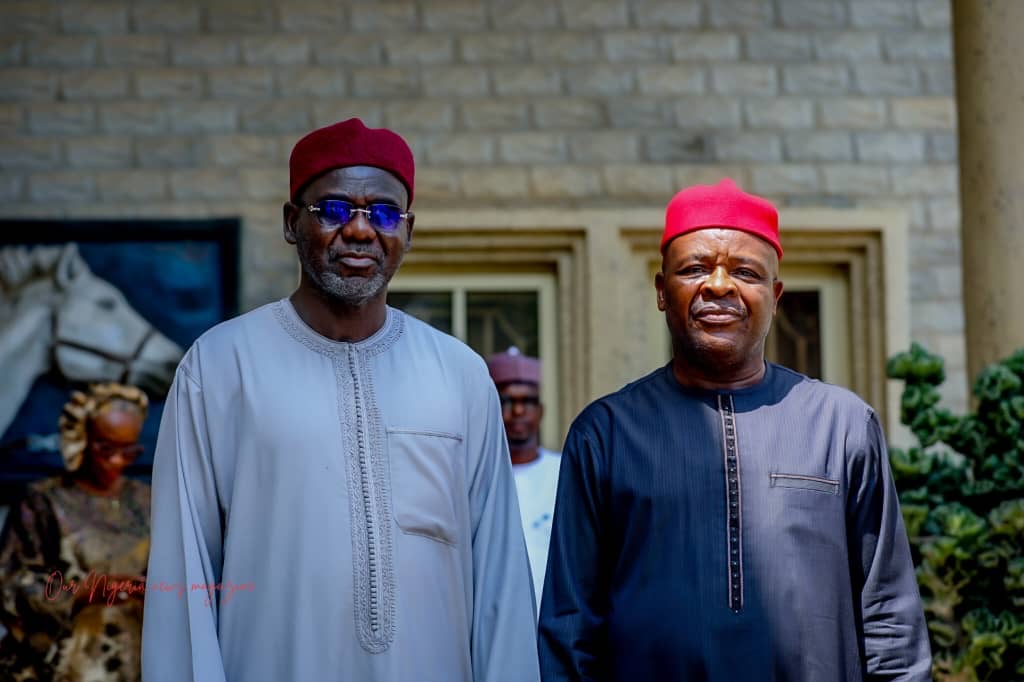
Buratai Pays Tribute to Ihejirika at 70, Hails Mentorship and Legacy of Leadership
Former Chief of Army Staff and Nigeria’s immediate past Ambassador to the Republic of Benin, Lt. Gen. (Rtd) Tukur Yusuf Buratai, has paid a glowing tribute to his predecessor, Lt. Gen. OA Ihejirika, as the retired General marks his 70th birthday.
In a heartfelt message released in Abuja on Friday, Buratai described Ihejirika as not only a distinguished soldier and statesman, but also a commander, mentor, and “architect of leadership” whose influence shaped a generation of senior military officers.
Buratai recalled that his professional rise within the Nigerian Army was significantly moulded under Ihejirika’s command, citing key appointments that defined his career trajectory.
According to him, the trust reposed in him through early command responsibilities, including his first command posting at Headquarters 2 Brigade and later as Commandant of the Nigerian Army School of Infantry, laid a solid foundation for his future leadership roles.
“These opportunities were not mere appointments; they were strategic investments in leadership,” Buratai noted, adding that such exposure prepared him for higher national responsibilities.
He further acknowledged that the mentorship and professional grounding he received under Ihejirika’s leadership were instrumental in his eventual appointment as Chief of Army Staff and later as Nigeria’s Ambassador to the Republic of Benin.
Buratai praised Ihejirika’s command philosophy, describing it as professional, pragmatic, and mission-driven. He said the former Army Chief led by example, combining firm strategic direction with a clear blueprint for excellence that continues to influence military leadership practices.
“At seventy, General Ihejirika has earned the right to reflect on a legacy secured,” Buratai stated, praying for good health, peace, and enduring joy for the retired General as he enters a new decade.
He concluded by expressing profound gratitude for the leadership, mentorship, and lasting example provided by Ihejirika over the years.
The tribute was signed by Lt. Gen. Tukur Yusuf Buratai, who described himself as a grateful mentee and successor, underscoring the enduring bonds of mentorship within the Nigerian Army’s top leadership.
news
Sagamu Plantation Row: Igimisoje-Anoko Family Challenges LG Claim
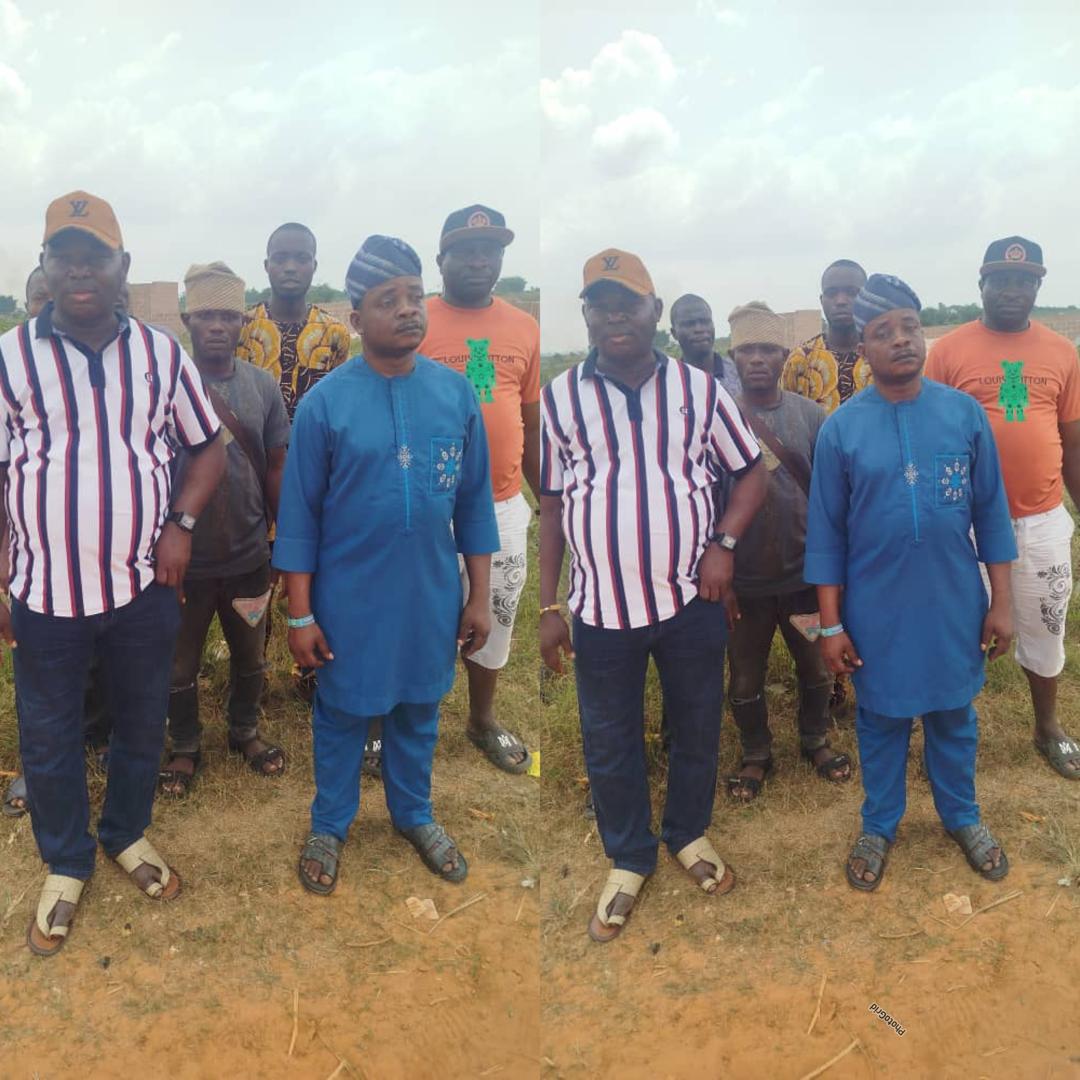
news
Sagamu Communities Exonerate Sir Kay Oluwo, Accuse Teriba of Land Invasions, Violence
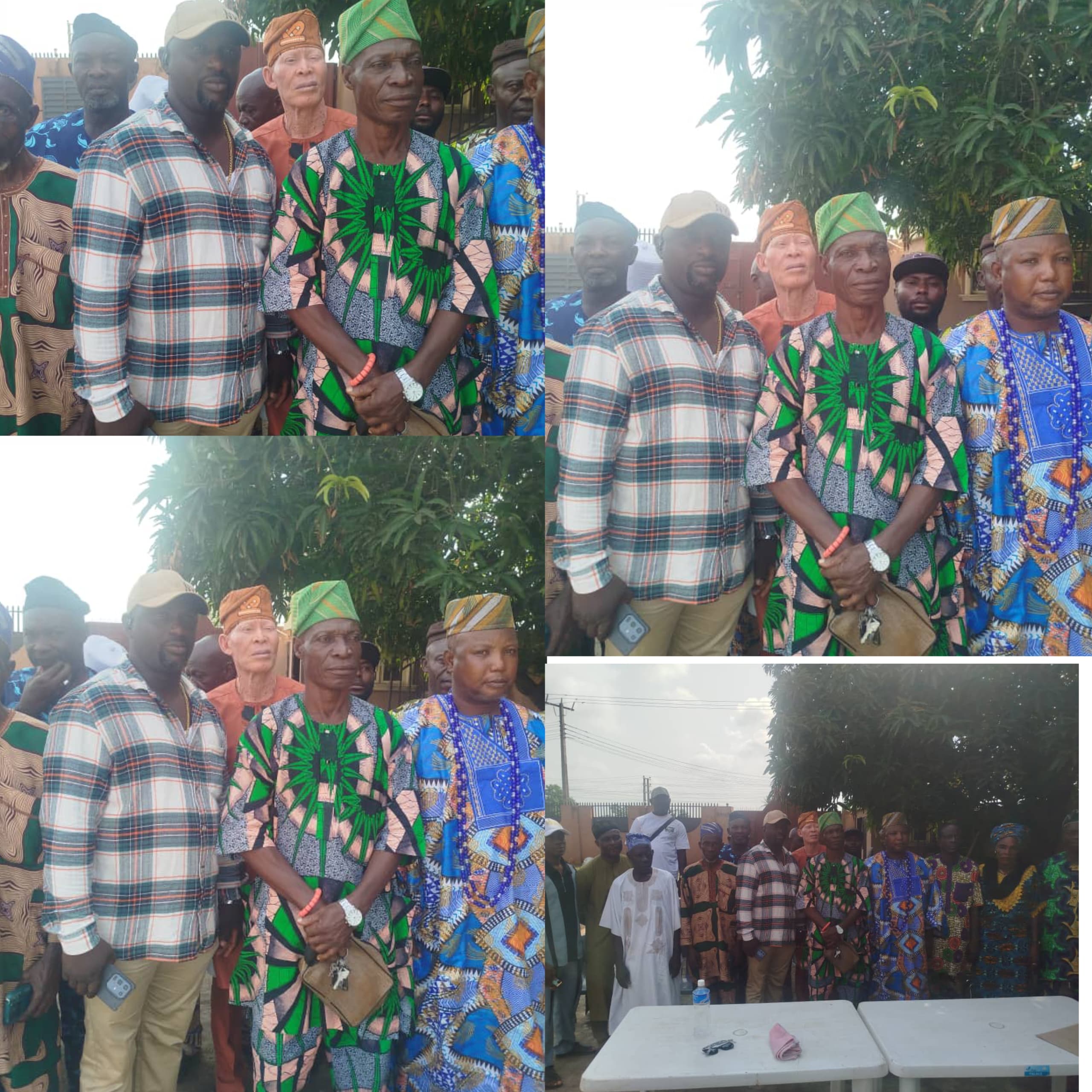
-

 celebrity radar - gossips6 months ago
celebrity radar - gossips6 months agoWhy Babangida’s Hilltop Home Became Nigeria’s Political “Mecca”
-

 society6 months ago
society6 months agoPower is a Loan, Not a Possession: The Sacred Duty of Planting People
-

 news6 months ago
news6 months agoTHE APPOINTMENT OF WASIU AYINDE BY THE FEDERAL GOVERNMENT AS AN AMBASSADOR SOUNDS EMBARRASSING
-

 Business6 months ago
Business6 months agoBatsumi Travel CEO Lisa Sebogodi Wins Prestigious Africa Travel 100 Women Award


